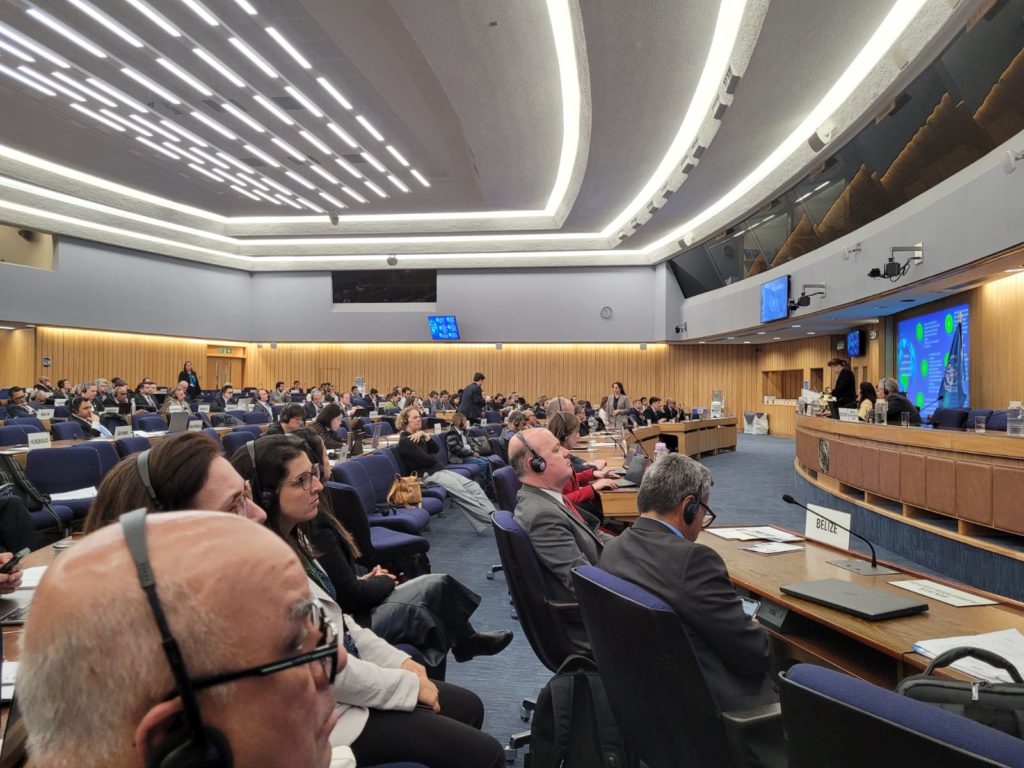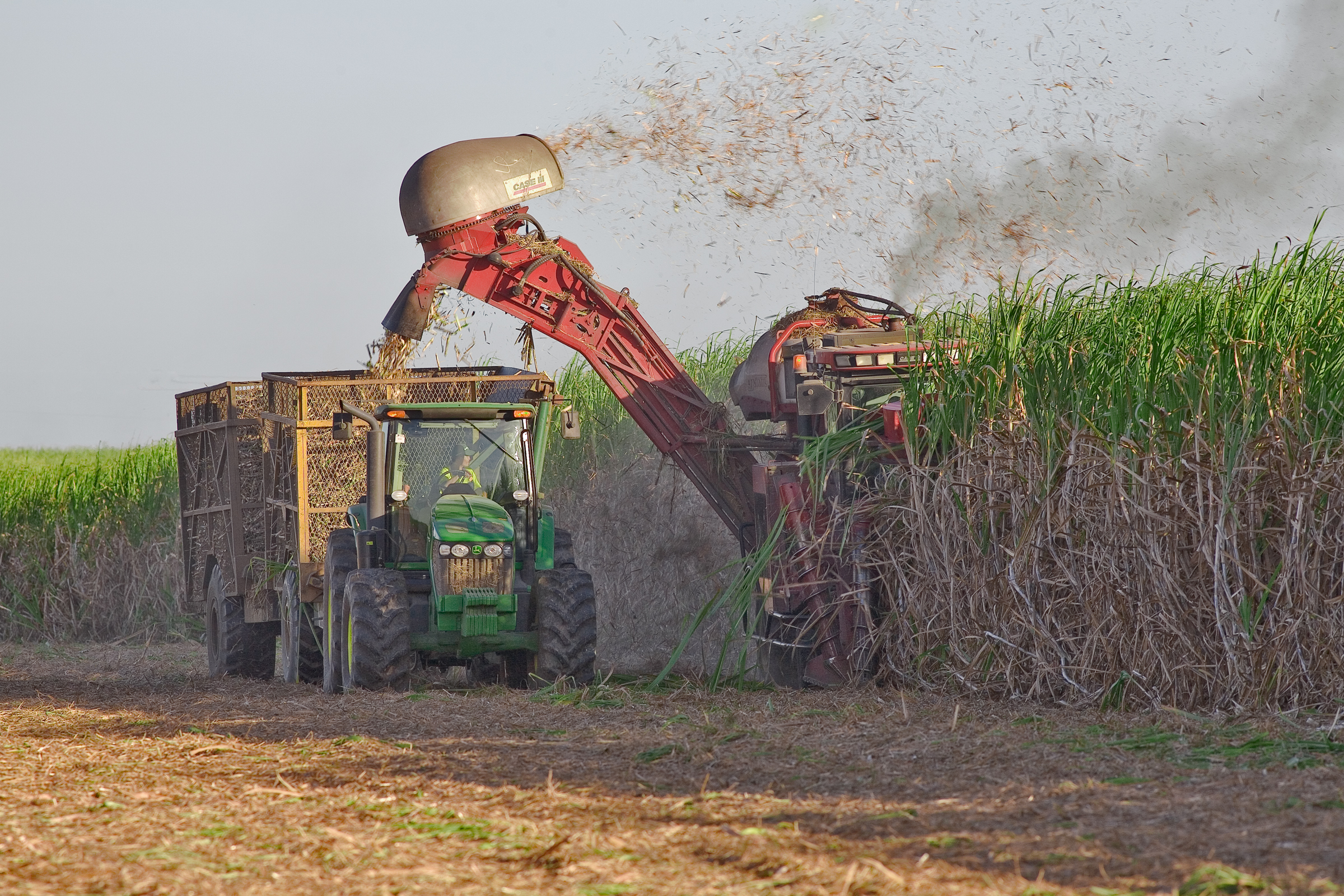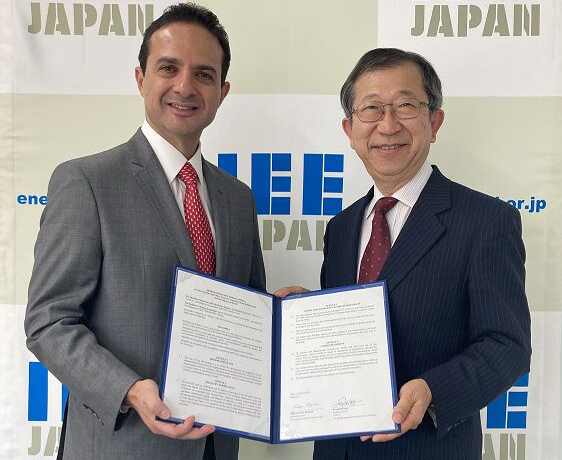
The city of London recently hosted high-level discussions organized by the International Maritime Organization (IMO), focused on establishing a framework to guide the decarbonization of international shipping. One of the key solutions being championed to achieve the target of net-zero greenhouse gas emissions by 2050 is the increased use of marine biofuels. On April 10th, representatives from the biofuels industry, scientific community, and other key stakeholders gathered for a dedicated event to debate and highlight the role of biofuels in supporting a clean energy transition for the shipping sector.
As part of the event, the Brazilian Sugarcane and Bioenergy Industry Association (UNICA), in partnership with the Brazilian Trade and Investment Promotion Agency (ApexBrasil) through the Sugarcane Ethanol Project, hosted a networking cocktail reception. The gathering offered a valuable opportunity for participants to exchange insights and experiences on the contribution of biofuels to sustainable maritime transport.
When addressing the challenge of transport decarbonization, the shipping industry stands out as a critical sector. Responsible for transporting around 80% of global goods, it contributes approximately 940 million tons of carbon emissions annually, according to IMO. Achieving significant emission reductions over the next 25 years will require scalable, readily available, and cost-effective solutions—such as ethanol used as marine biofuel. This biofuel can reduce CO₂ emissions by up to 76% (on a well-to-wake basis), sulfur oxide (SOx) emissions by 95%, and nitrogen oxide (NOx) emissions by 40%, making them a promising pathway for sustainable maritime transport.
The event held last week, in parallel with the IMO negotiation sessions—which culminated the following day in the approval of the first global mechanism to decarbonize international shipping—had a dual purpose. It aimed not only to highlight the significant role of biofuels in achieving climate goals, but also to scientifically address and refute common misconceptions about the impact of biofuel production on deforestation and food security. Professor Dr. Glaucia Mendes Souza, from the University of São Paulo and head of the International Energy Agency’s task force on transport decarbonization, presented a comprehensive study in which she reviewed and systematically analyzed more than 80 academic papers on the indirect land-use effects of biofuel production. Her conclusion: there is no proven negative correlation. “When we started looking at this issue of biofuels competing with food production, we discovered that there is no correlation, this discourse is not scientifically based. It is not a dilemma” she stated.
The audience had the opportunity to hear and discuss how countries that already produce and use biofuels on a large scale—such as Brazil—can play a key role in implementing the international agreement promoted by the IMO to decarbonize the shipping sector and introduce carbon pricing mechanisms. In this context, Brazil leads by example. Its long-standing experience with ethanol use in road transportation positions the country as a global reference, with valuable insights and solutions that can also be extended to maritime transport and aviation.
About Sugarcane Ethanol Project
ApexBrasil and UNICA made public in 2008, through the Brazilian Sugarcane Ethanol partnership, a strategy to promote the image of sugarcane products abroad, especially Brazilian ethanol as a clean and renewable energy. In 2023, the two entities signed an agreement that provides for shared investments.
The sectoral project aims to influence the process of building the image of ethanol and other sugarcane derivatives among the main global opinion makers – governments and the media, as well as trading companies, potential investors and importers, NGOs and consumers.
About ApexBrasil
The Brazilian Trade and Investment Promotion Agency (ApexBrasil) works to promote Brazilian products and services abroad and attract foreign investments to strategic sectors of the Brazilian economy. In order to achieve its goals, ApexBrasil carries out several trade promotion initiatives aimed at promoting Brazilian products and services abroad, such as prospective and trade missions, business rounds, support to the participation of Brazilian companies in major international fairs, visits of foreign buyers and opinion makers to learn about the Brazilian productive structure, among other business platforms that also aim at strengthening the Brazil brand. The Agency also acts in a coordinated way with public and private players to attract foreign direct investment (FDI) to Brazil with a focus on strategic sectors for the development of the competitiveness of Brazilian companies and the country.



